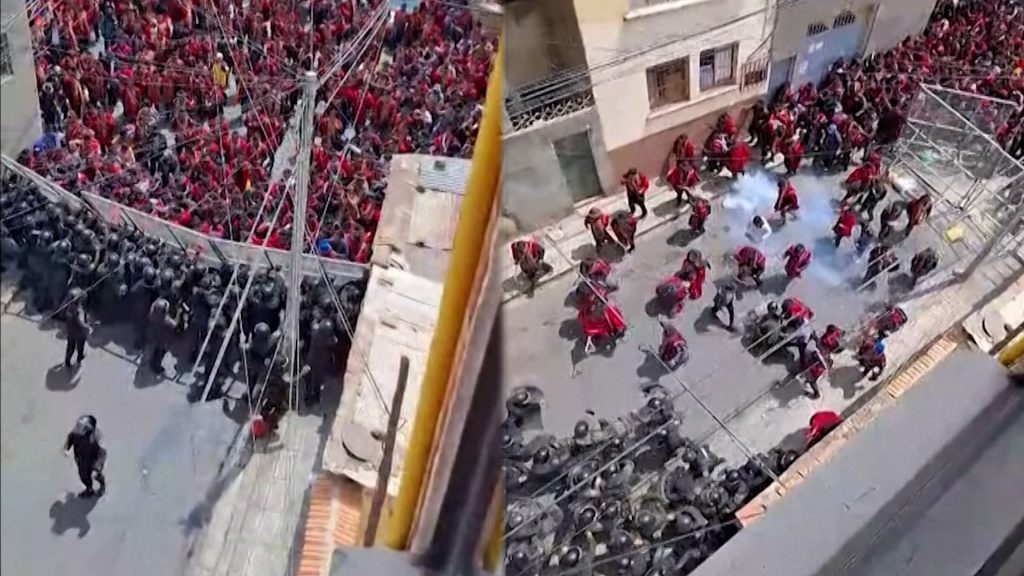On September 3, 2024, members of the Bolivian social movement known as the Red Ponchos engaged in protests over the state of the country’s economy. The protesters managed to break through a line of police in riot gear, who responded with tear gas and rubber-coated bullets. This clash between the protesters and law enforcement adds to the escalating tension and volatility in Bolivia, as citizens express their dissatisfaction with the economic conditions in the country.
The Red Ponchos, a prominent social movement in Bolivia, have been at the forefront of advocating for social and economic justice. Their participation in the recent protests highlights the widespread discontent among citizens regarding the current state of the country’s economy. The clashes between the Red Ponchos and the police reflect the growing unrest and frustration that many Bolivians are experiencing as they struggle with economic challenges and inequality.
The use of tear gas and rubber-coated bullets by the police against the protesters further heightens the intensity of the situation. The violent tactics employed by law enforcement indicate a heavy-handed approach to quelling the protests, which could potentially exacerbate the tensions between the government and the citizens. The clashes between the Red Ponchos and the police serve as a stark reminder of the deep-rooted social and economic issues facing Bolivia and the challenges that lie ahead in addressing them.
The protests in Bolivia underscore the urgent need for comprehensive reforms to address the country’s economic woes and social inequality. The government must engage in meaningful dialogue with the various social movements and civil society groups to address the root causes of the unrest and work towards long-term solutions that benefit all citizens. By fostering open communication and collaboration, Bolivia can begin to lay the foundation for a more inclusive and equitable society that addresses the needs of all its citizens.
As the protests in Bolivia continue to escalate, there is a growing sense of urgency for the government to take proactive steps to address the underlying issues fueling the unrest. Failure to do so could lead to further violence and instability, which would only deepen the divisions within Bolivian society. It is imperative for all stakeholders to come together and work towards a peaceful resolution that prioritizes the well-being and prosperity of all citizens, especially those most marginalized and vulnerable.
In conclusion, the clashes between the Red Ponchos and the police in Bolivia highlight the deep-seated social and economic challenges facing the country. The protests serve as a wake-up call for the government to take decisive action to address the grievances of its citizens and work towards building a more just and equitable society. By fostering dialogue and collaboration, Bolivia can begin to pave the way for a brighter future that ensures the well-being and prosperity of all its people.















